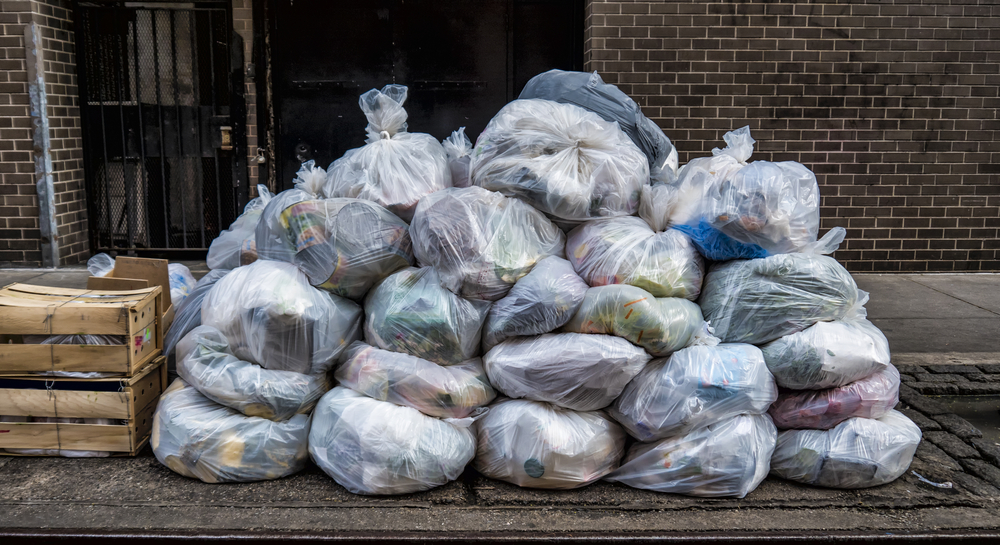
It is no secret that the United States is one of the leading producers of trash in the world. While much of this waste derives from the production habits of large companies – all of which can and should be regulated by various Zero Waste policies – everyone has a role to play in reducing our country’s waste. But figuring out that role is really tough! Especially when large companies have such a huge influence on our lives. After all, they’re the ones producing items that many of us regularly rely on. Also, the “out of sight, out of mind” approach to our waste systems makes it difficult to know where we can make a real impact. Luckily, there is a solution that your town or city could implement: Pay-as-you-throw programs.
What are pay-as-you-throw (PAYT) programs?
Pay-as-you-throw (PAYT) programs, also known as unit-based pricing, charge households for the trash they generate. This reframes waste collection as a utility, just like water or electricity, where consumers pay for what they use. These programs create an economic incentive for people to pay attention to the trash they generate – with the ultimate goal of reducing it. If that weren’t enough, implementing these programs come at a relatively low cost and help towns and cities save money.
Why have you never heard of PAYT before?
In 2006, just over 25% (or 7,000) of U.S. communities had PAYT programs, but the majority were concentrated in just a handful of states. You might be wondering: If these programs are so beneficial, why aren’t they more widespread? The main reason is that many communities already have a way of managing trash. For most communities, the cost of waste collection has historically been hidden in property taxes or through a fixed fee. Changing that system, which has been the status quo for decades, can be scary and uncomfortable. And in some instances, local politics may make it very difficult to overhaul.
Another reason PAYT isn’t more common is that the success of a program really depends on how it is crafted and implemented. In fact, of the 7,000 PAYT programs in the U.S. in 2006, less than half included the key features needed for success. Generally, there are four main types of PAYT programs. The bag-based version offers the most reliably dramatic success in reducing trash. Bath, Maine for example, saw a 60% decrease in waste after adopting a bag-based PAYT program in 2007 – saving taxpayers $171,000 each year. Under this bag-based system, community members purchase a specialized bag approved by the local government. Only these bags will be collected and transported to the landfill.
Also, depending on how a PAYT program is implemented, it can have a disproportionate financial impact on low-income community members. Before a program is implemented, it’s important to think critically and creatively about how to minimize the financial impact on low-income community members. For example, in a bag-based system one way to do this is by providing free bags to those enrolled in certain federal assistance programs that are based on income.
Bringing PAYT to your community
If you or your community is interested in a pay-as-you-throw program, having conversations with your local waste department or local government is one place to start. Some communities may require a local ordinance to adopt PAYT. Talking to your local government can help you identify next steps in this process. And gathering a group of like-minded people to lend support in educating members of your local government and community is key to pushing this ordinance forward.
But, while some communities pass an ordinance to implement PAYT programs, it may not be necessary for yours. Remember that you’re not alone in this journey. Just Zero is here to help if you have questions about implementing PAYT in your community. Contact us and ask to speak with one of our staff members about PAYT.
If your community is not ready to implement a program like this one, there are other ways you can get involved in this work! Help inform your community about the harms our waste management system has people and our planet. Advocate for Zero Waste policies that tackle trash. And by subscribing to Just Zero’s network, we’ll keep you up-to-date on Zero Waste news throughout the country.